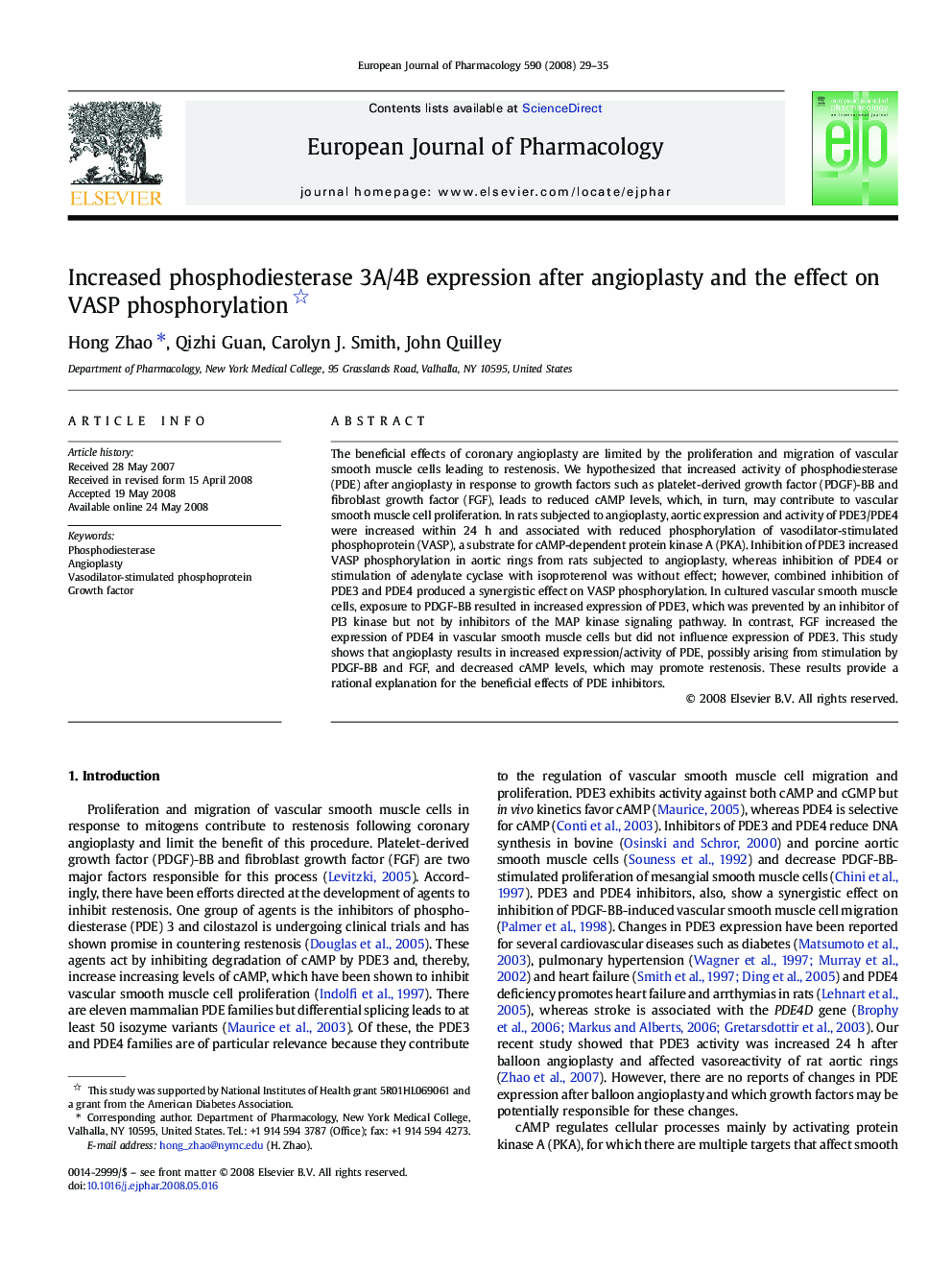| Article ID | Journal | Published Year | Pages | File Type |
|---|---|---|---|---|
| 2534920 | European Journal of Pharmacology | 2008 | 7 Pages |
The beneficial effects of coronary angioplasty are limited by the proliferation and migration of vascular smooth muscle cells leading to restenosis. We hypothesized that increased activity of phosphodiesterase (PDE) after angioplasty in response to growth factors such as platelet-derived growth factor (PDGF)-BB and fibroblast growth factor (FGF), leads to reduced cAMP levels, which, in turn, may contribute to vascular smooth muscle cell proliferation. In rats subjected to angioplasty, aortic expression and activity of PDE3/PDE4 were increased within 24 h and associated with reduced phosphorylation of vasodilator-stimulated phosphoprotein (VASP), a substrate for cAMP-dependent protein kinase A (PKA). Inhibition of PDE3 increased VASP phosphorylation in aortic rings from rats subjected to angioplasty, whereas inhibition of PDE4 or stimulation of adenylate cyclase with isoproterenol was without effect; however, combined inhibition of PDE3 and PDE4 produced a synergistic effect on VASP phosphorylation. In cultured vascular smooth muscle cells, exposure to PDGF-BB resulted in increased expression of PDE3, which was prevented by an inhibitor of PI3 kinase but not by inhibitors of the MAP kinase signaling pathway. In contrast, FGF increased the expression of PDE4 in vascular smooth muscle cells but did not influence expression of PDE3. This study shows that angioplasty results in increased expression/activity of PDE, possibly arising from stimulation by PDGF-BB and FGF, and decreased cAMP levels, which may promote restenosis. These results provide a rational explanation for the beneficial effects of PDE inhibitors.
